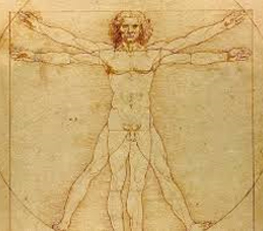(07-05-2018) Healthy elderly brains DO grow new cells — just as many as young adult brains, according to new research
(Natural News) Many older people don’t seem as mentally sharp as young people, and it’s long been believed that brains stop making new cells as they age. Some research has even indicated that adults do not grow new neurons. Now, a new study in the journalCell Stem Cellcasts these ideas in serious doubtas researchers show elderly people are more intact both cognitively and emotionally than scientists once believed.
The researchers made their conclusions after examining the hippocampi taken from 28 people between the ages of 14 and 79 who had been healthy but died suddenly. Those involved were people who had not been drug users or cognitively impaired in any way, nor had they suffered from depression or been taking antidepressants for any reason – something that can affect new brain cell production.
This study broke ground as it marked the first time scientistsstudied the state of blood vesselsand newly formed neurons throughout the human hippocampus so soon after the subjects passed away. The hippocampus serves many functions, one of which is creating new memories and emotional control. The brains came from donations, and all had been preserved with the same methods and came with detailed medical histories.
The researchers discovered that all of the brains, even the oldest ones in the study, produced new brain cells. In fact, people in their 70s create new brain cells at a rate that is comparable to that seen in teenagers’ brains, according to the scientists.
However, they found that older people form fewer new blood vessels in their brain structures and have a smaller pool of stem cell descendants known as progenitor cells. It is this declining availability of neural stem cells and the drop in vascularization and cell-to-cell connectivity inside the hippocampus that could be responsible for the lower cognitive-emotional intelligence seen among some older people. They’d like tocarry out further researchon aging brains to determine how the proliferation, survival and maturation of neural cells is regulated by inter-cellular pathways, transcription factors, and hormones.
The study’s lead author, neurobiologist Dr. Maura Boldrini ofColumbia University, said: “When I went to medical school, they used to teach us that the brain stops making new cells.†However, researchers started to doubt that notion after observing older mice producing new nerve cells and early studies on humans showing a similar trend.
Another recent study reached a far different conclusion
The findings come just a month after the journalNaturepublished a study in which researchers from theUniversity of California, San Francisco, wereunable to find evidencethat neurogenesis takes place in humans after they’ve passed adolescence.
That group said that while the newer study’s findings about the reduced blood vessel growth in adults was interesting, they did not think that there was any conclusive proof thatneurogenesis does occur in adults. However, the two studies worked with very different samples, so it isn’t that much of a stretch for their findings to be so conflicting.
Boldrini pointed out: “In science, the absence of evidence is not evidence of absence. If you can’t find something it doesn’t mean that it is not there 100 percent.â€
While scientists now have some very interesting new findings to ponder, it looks like the debate about whether or not the brain continues to create new neurons throughout our lifetime is far from settled.
ReadBrain.newsfor more breaking news on brain health science.
Sources for this article include:
MedicalXpress.com
LiveScience.com
LATimes.com
News
In evidenza
 "L'informazione presente nel sito serve a migliorare, e non a sostituire, il rapporto medico-paziente."
"L'informazione presente nel sito serve a migliorare, e non a sostituire, il rapporto medico-paziente."
Per coloro che hanno problemi di salute si consiglia di consultare sempre il proprio medico curante.

Informazioni utili
-
Ricette a zona
-
Tabelle nutrizionali
-
Tabella composizione corporea
-
ABC della nutrizione






